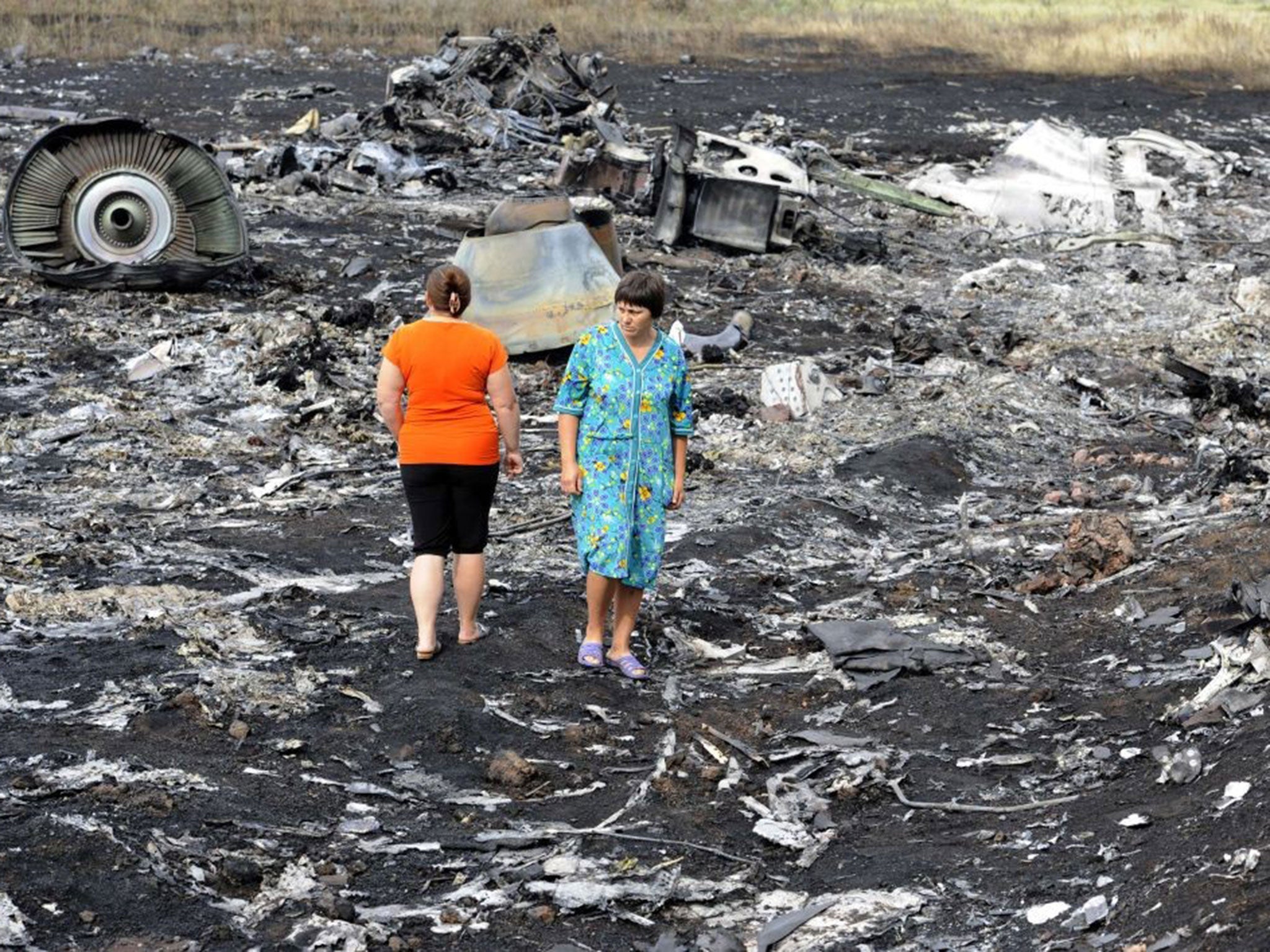Malaysia Airlines MH17: Religion can't offer any satisfactory explanations for tragedy
Which God leads people to blow so many out of the Ukrainian sky?

September 11, 2001. We were living in Manhattan. As we readied the children for their fourth day at their new ‘proper’ school in Greenwich Village (their former kindergarten was one block from the twin towers of the World Trade Center), my ex was deciding logistics: did she go to Midtown first thing for a meeting or to the WTC? She plumped randomly for the former. How could anyone know how fateful that decision was to prove?
I couldn’t help but recall 9/11 while reading about Barry and Izzy Sim. The British couple were due to fly to Kuala Lumpur on Malaysian Airlines flight MH17 from Schiphol Airport with their baby, only to be told at check-in that there wasn’t room on the Boeing 777 for all of them.
They were bumped onto a later KLM flight. We all know now that this “bad luck” saved the Sims from being among the 295 victims of the missile attack that downed the jet over Ukraine.
After hearing of the attack, Mr Sim told the BBC: "You get this sick feeling in the pit of your stomach. We started getting butterflies. Your heartbeat starts going…". His wife added: "There must have been someone watching over us and saying 'You must not get on that flight'”.
Going back 13 years, I know a little of how they felt. We all experienced that sick feeling on 9/11, both for the personal reasons outlined above, as well as – in that case - the fear of not understanding the wider picture.
Whenever there is a major tragedy, similar stories emerge of people lucky enough to have swerved disaster: those who missed Pan Am flight 103 over Lockerbie, didn’t board the Titanic, or could not get into the Hillsborough semi-final. There were many 9/11 stories like ours.
Mrs Sim may have put it down to “someone watching over” her family, but it is difficult to reconcile that with the implied lack of anyone watching over the 295 victims – or, for that matter, those poor children whose innocent act of playing on a Gaza beach led to their being killed in an Israeli missile strike.
“As flies to wanton boys are we to the Gods; they kill us for their sport” said Shakespeare through his character Gloucester in King Lear. Gloucester was feeling understandably bleak about life having just been blinded savagely by Cornwall and Regan.
It’s the quotation from my schooldays that stuck more than any other. It certainly made more sense to me as an 18-year-old A-level student than 14 years of force-fed Catholicism.
Religion, especially the concept of a benign supreme being, could never offer a satisfactory explanation for either major global disasters, or the several heartbreaking personal tragedies that befell my deeply devout family. It still can’t.
Is the Israeli or Palestinian God more just? Which God leads people to kill children playing on a beach, blow so many out of the Ukrainian sky, or gleefully stone an alleged Iraqi “adulteress” to death?
It all leaves me with very human(ist) feelings: sorrow at our inhumanity towards each other, and a desire to hug those we love closer; not part company, or go to sleep at night, in anger; and instead tell those we care for, more often, that we love them. Go on. Do it now.
Stefano Hatfield is editor in chief, High50.

Join our commenting forum
Join thought-provoking conversations, follow other Independent readers and see their replies